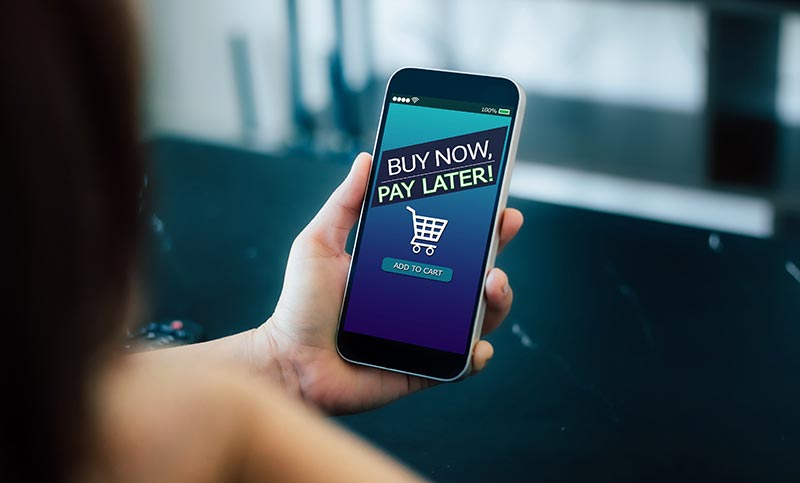FDIC-Insured - Backed by the full faith and credit of the U.S. Government
-
-
-
FNBO
Personal Finance
Date Published: September 10, 2025Originally Published: March 29, 2022
-
Article | Read time: 3.5 minutes

If you’ve recently been shopping online or in stores, you may have noticed an increasing number of retailers offering 'Buy Now, Pay Later' (BNPL) payment options* in addition to debit or credit cards and/or third-party payment services like PayPal. If BNPL is new to you, you may be hesitant to utilize this option. This article will help you understand what BNPL is and if this payment method is right for you.
What is ‘Buy Now Pay Later?’
‘Buy Now, Pay Later’ gives you the option to buy something today and then pay for it over time. Payments are often made in equal installments and charged to your credit/debit card as opposed to putting the full purchase amount on your card at the time of purchase. The number of installments varies but the average is usually around four. The benefit of BNPL is that you get the flexibility to buy an item today that you may not otherwise have been able to easily afford, the merchant makes a sale that may not have otherwise happened, and the BNPL provider is paid a fee from the merchant for providing the financing.
While there are many BNPL providers in the marketplace, the most popular providers include Affirm, Afterpay, Sezzle, EXL, Skeps, Zip and PayPal’s ‘Pay in 4’.
Do ‘Buy Now, Pay Later’ Providers Charge Interest or Late Fees?
In general, BNPL payment options don’t charge any interest if you make your payments on time. However, there are some exceptions so be sure to do your research before selecting a BNPL provider.
Some BNPL providers will also charge a late fee if you do not make your payment on time. These fees usually range from $7 to $10 per late payment while others can be as high as 25 percent of the order amount.
Does ‘Buy Now, Pay Later’ Impact my Credit Score?
BNPL providers also differ in how they extend credit so be sure to review the account details carefully. Many don’t require any credit check while others only perform a soft inquiry on your credit report. Neither of these activities will have an impact your credit score. However, some providers require a full credit check which does have an impact your credit score.
If the BNPL provider reports to the credit bureaus, making on-time payments could have a positive impact on your credit history. On the flip-side, not making your payments on time could have a negative impact on your credit score.
Do ‘Buy Now, Pay Later’ Options Have Credit Limits?
Again, it depends on the provider. When you apply for BNPL financing, many providers will give you a credit limit that can be used for multiple purchases (much like a credit card or line of credit). The credit limits also vary by provider, ranging from $30 to $17,500 or more. It’s important to understand your credit limit after applying and/or before making your purchase because it may impact your ability to make your desired purchase.
Other providers require you to apply for BNPL financing for each individual purchase. The approved amount is good for your current purchase only and cannot be used on a revolving basis, much like a car loan or other installment loan.
When Should I Choose ‘Buy Now, Pay Later’ Over Credit Cards?
When making a purchase, BNPL may be a good option when you want to pay for your purchase without being charged interest, when you want to pay for an item using credit without having your credit checked, and possibly build credit by making your payments on time. You may want to consider using a credit card when making a purchase if you receive rewards, discounts and/or other benefits that outweigh the benefits of using a BNPL provider.
Using BNPL may be confusing at first but it’s simply another option when it comes to paying for the things you want and need in life. The important thing when choosing a BNPL solution is to understand what all your options are and to carefully read the terms and conditions before applying.
*FNBO offers a BNPL payment option.
The articles in this blog are for informational purposes only and not intended to provide specific advice or recommendations. When making decisions about your financial situation, consult a financial professional for advice. Articles are not regularly updated, and information may become outdated.
